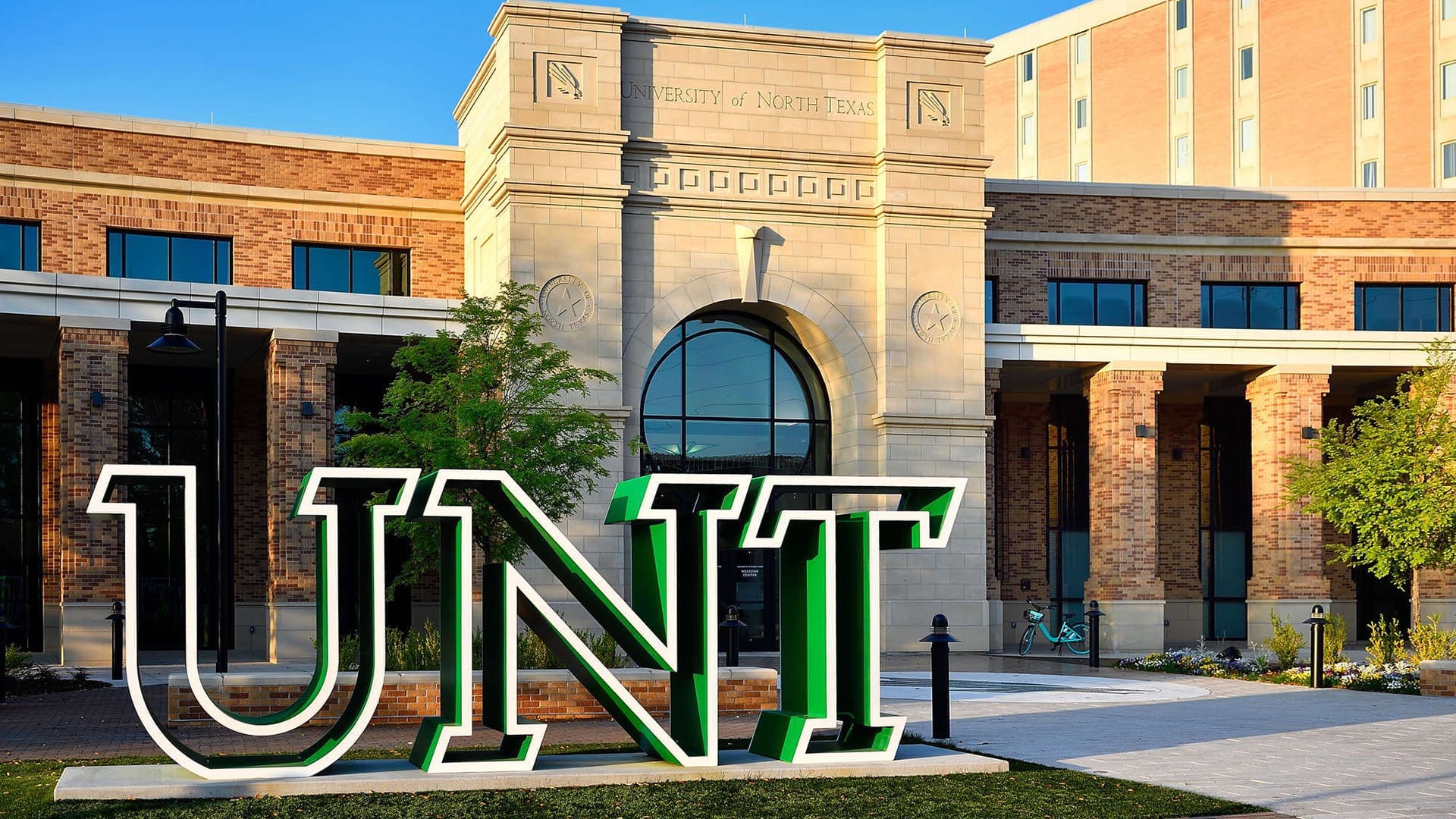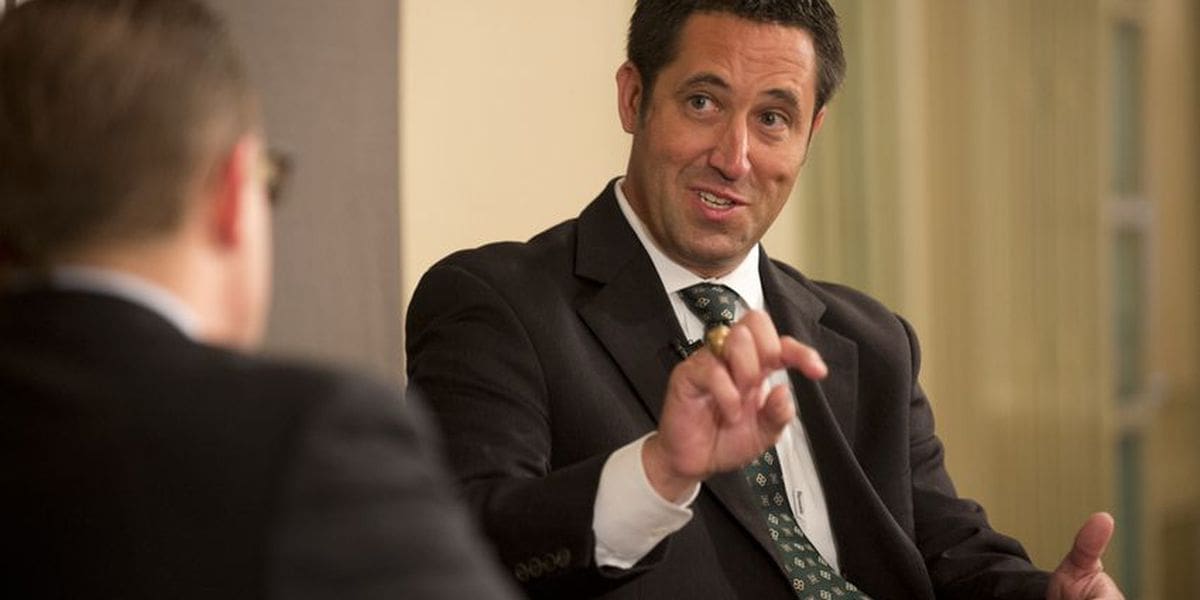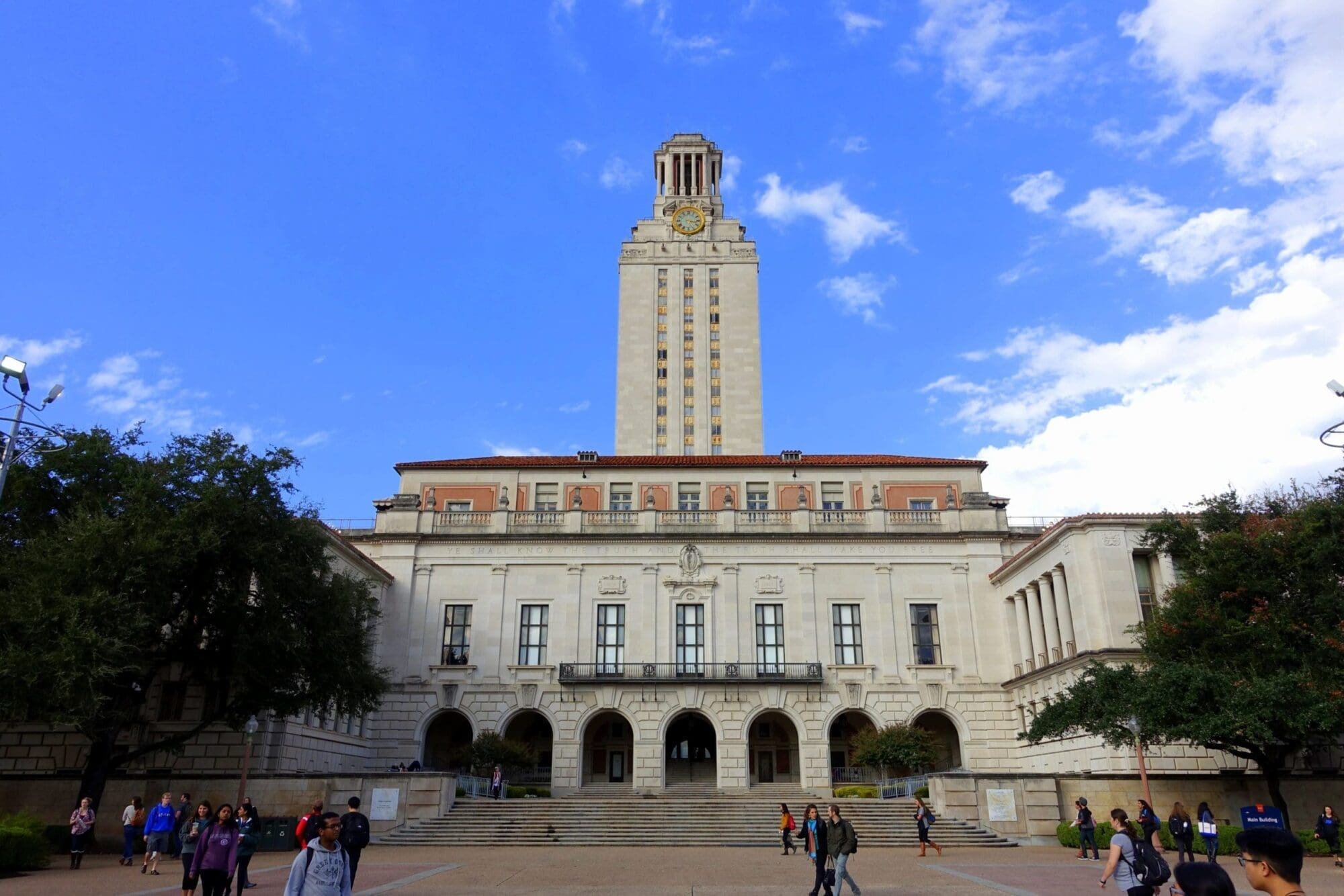Though the Legislature isn’t in session, the Texas Senate has already gotten to work, holding a hearing Tuesday to study the current climate on college campuses.
The hearing, chaired by State Sen. Brandon Creighton (R–Conroe), focused largely on the rise of antisemitic protests on college campuses as well as the implementation of a new state law banning Diversity, Equity, and Inclusion departments in Texas’ public universities.
Anti-Israel protests have captured college campuses nationwide. Texas has been no exception, with hundreds of students marching and gathering earlier this month at the University of Texas at Austin in support of a “Free Palestine.”
Officers from the Department of Public Safety and the University of Texas Police Department worked swiftly to shut down attempts at violence and encampments.
Freeman Martin, the deputy director of Homeland Security for DPS, said the response was based on intelligence that those organizing the protests were seeking to “occupy and disrupt.” Officers reportedly found a stockpile of rocks and bricks, as well as pepper spray and knives.
The bulk of the hearing, however, focused on the implementation of the state’s DEI ban.
Senate Bill 17 prohibits Texas universities from hiring employees to “perform the duties” of a DEI office and is supposed to block the promotion of policies, training, or activities “designed or implemented in reference to race, color, or ethnicity.” It went into effect in January of this year.
“DEI ideology mirrors old Marxist talking points, dividing the world into oppressed and the oppressors,” said Creighton, who also authored SB 17. “DEI advocates believe group characteristics such as race, sex, and nationality, define someone’s privilege.”
Creighton suggested that DEI programs have led to a campus culture that encourages out-of-control encampments and riots on campuses, pointing toward a University of Houston training that described “religious privilege” to students.
“Given this context, it’s no surprise that a small group of students and faculty felt they could take over campuses to spread this radical ideology and they feel comfortable occupying campuses to propagate the view … that Israel and the Jewish community are privileged oppressors, colonizing helpless Palestinians,” said Creighton. “In the past these groups got what they wanted by shouting loud enough, leading universities to allocate tens of millions of dollars, reshaping hiring and promotions, and establishing hundreds of committees and the offices to please them.”
He went on to say that DEI programs are unnecessary to achieve diversity.
“We can make our institutions of higher education reflect the diversity of our state and improve. No amount of DEI trainings that are mandatory, workshops, or political oaths that have to be signed in order to apply for a job will open up opportunities for underserved students in Texas. And we saw that as under 10 years of DEI, minority faculty recruitment and hiring numbers went backward,” said Creighton.
Chancellors from the state’s public university systems were invited to testify on the progress of eliminating their DEI departments.
J.B. Milliken, the chancellor of the University of Texas, told senators he estimated that over $25 million was being saved or reallocated after closing 21 DEI offices, eliminating 311 full and part-time positions that performed DEI duties, and canceling 681 DEI contracts, programs, and training.
“I believe our board, our system, administrative leadership, and our presidents and their administrative teams, have undertaken the significant work of executing the many changes in a very large operation in good faith and successfully, and we have mechanisms in place to continue audit oversight to ensure compliance on an ongoing basis,” Milliken told the committee.
John Sharp, the chancellor of Texas A&M, also said his university was committed to implementing the new law.
“The Texas A&M University System and its member institutions and our regents have worked hard in complying with Senate Bill 17, and we instructed the system to move quickly and directed them to implement it by September 1 instead of waiting till January 1,” said Sharp.
He also brushed off comments made by Mark Welsh, the new president of Texas A&M’s flagship campus in College Station who had criticized the DEI ban.
“I don’t have any concerns about him. I have no doubt he’s going to follow along,” said Sharp.





